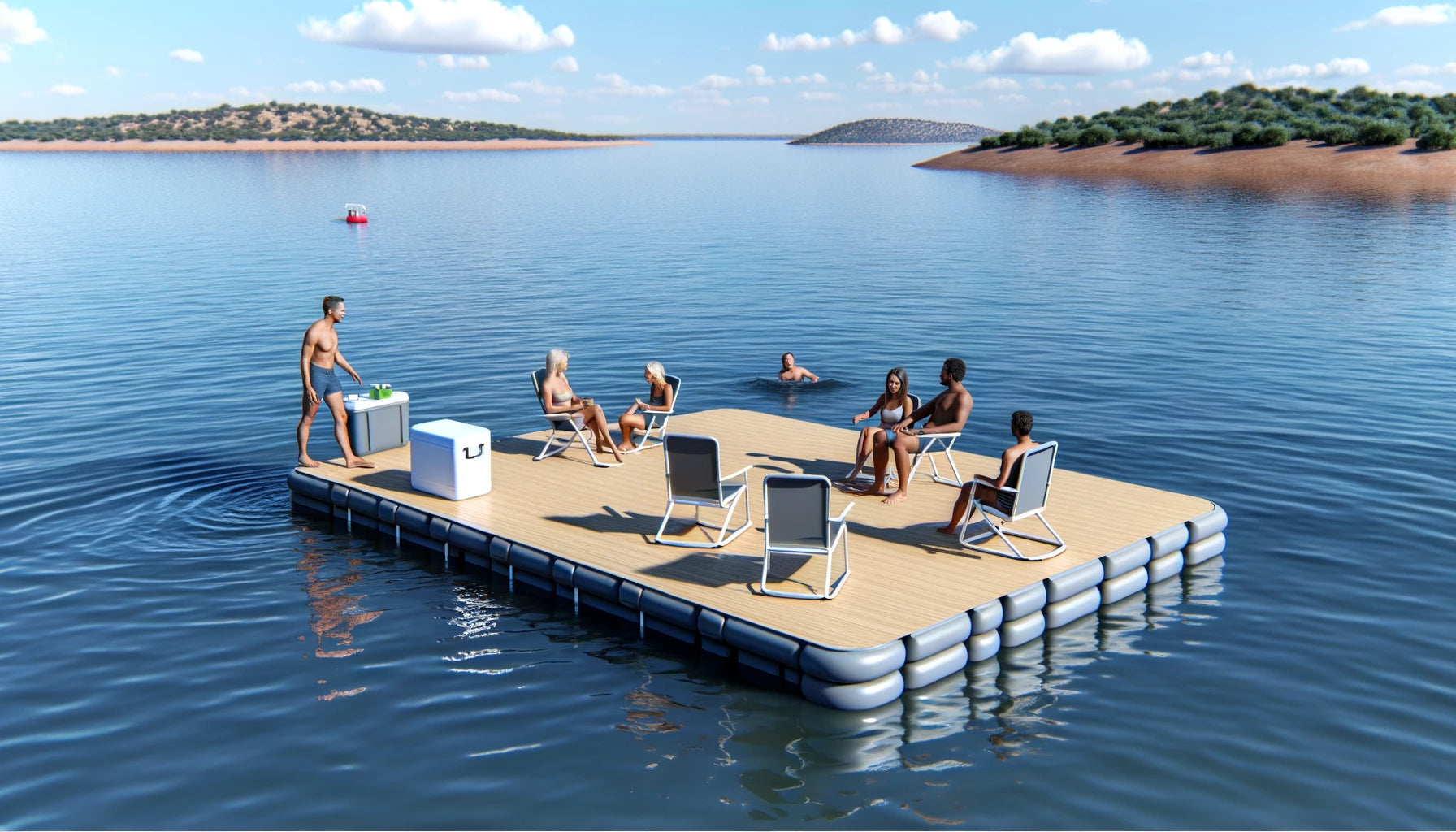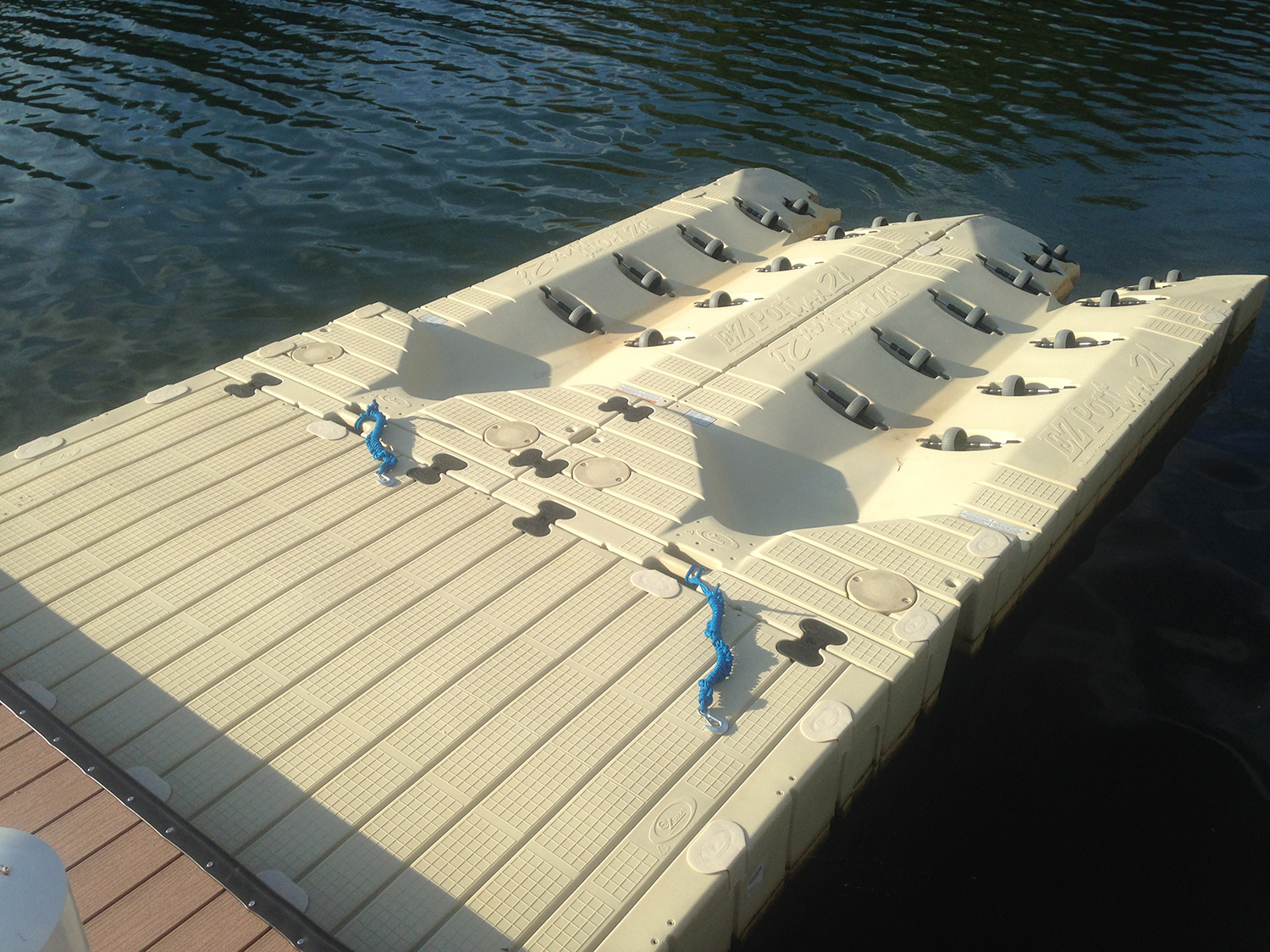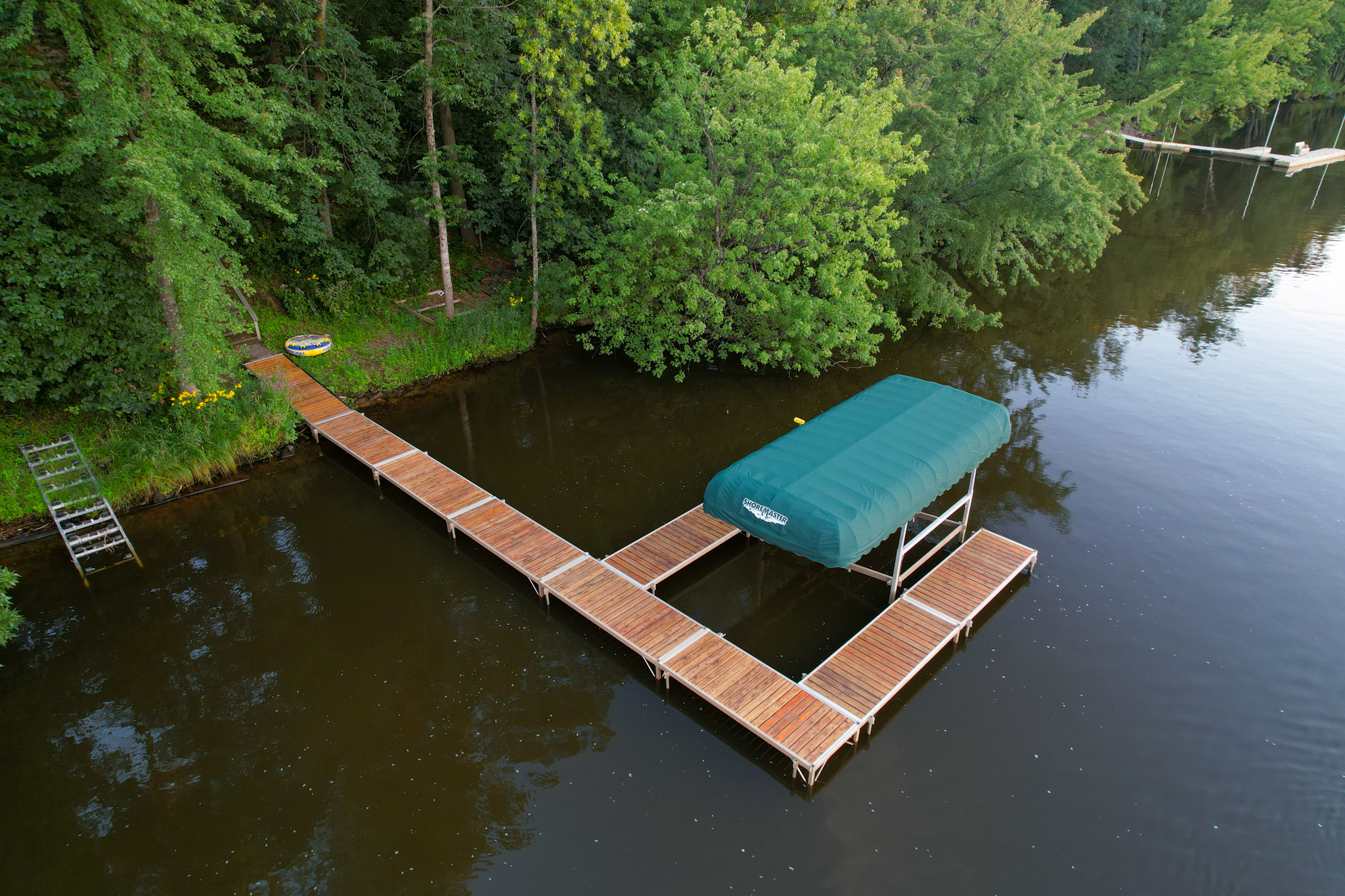Check out the Advantages of Choosing a Floating Docks Option for Your Beachfront Property
Check out the Advantages of Choosing a Floating Docks Option for Your Beachfront Property
Blog Article
The Ultimate Overview to Choosing the very best Floating Docks
Choosing the perfect floating dock requires a comprehensive understanding of numerous aspects that affect both performance and durability. Elements such as dock kinds, materials, and important features considerably affect your decision-making process.
Recognizing Floating Dock Kind
When selecting a floating dock, it is necessary to recognize the different types readily available, as each serves distinct functions and applications. Floating docks mainly come under three categories: modular, stationary, and pontoon docks.
Modular docks are composed of specific sections that can be conveniently set up or reconfigured, making them ideal for transforming water degrees and diverse uses, such as industrial procedures or entertainment tasks. Their versatility permits customization based upon specific demands.

Pontoon docks are characterized by their buoyant framework, commonly composed of numerous pontoons that provide stability and support. They are specifically fit for bigger vessels and are typically utilized in marinas or for waterside homes. Recognizing these kinds aids in selecting the most appropriate floating dock to fulfill particular demands, making certain optimal functionality and safety.
Secret Materials for Toughness
Selecting the appropriate materials for floating docks considerably impacts their toughness and durability. One of the most common materials consist of wood, plastic, metal, and composite materials, each offering distinct advantages and restrictions.
Timber, commonly preferred for its aesthetic charm, requires regular maintenance to stand up to wetness and decay. Pressure-treated lumber can improve resistance to rot, however it may still be prone to bugs and weathering.

Plastic docks, constructed from high-density polyethylene (HDPE), are resistant to rust, UV radiation, and effect, making them a prominent selection for coastal environments. Their light-weight nature additionally helps with easy setup and relocation.
Metal docks, usually built from light weight aluminum or galvanized steel, supply extraordinary toughness and resilience. They are immune to rust, particularly when dealt with, however might call for added insulation to protect against heat buildup in warm climates.
Composite materials, integrating wood fibers and plastics, deliver the advantages of both timber and plastic, withstanding moisture and fading while calling for marginal upkeep. - floating docks
Inevitably, the choice of materials should align with ecological conditions, intended usage, and maintenance preferences to make certain the floating dock continues to be useful and visually pleasing in time.
Vital Features to Think About
While the choice of materials is critical, thinking about important attributes for floating docks is similarly important to make certain optimum efficiency and customer contentment. One crucial feature to analyze is the dock's buoyancy capability, which identifies just how much weight it can support without immersing. floating dock services. This is vital for accommodating watercrafts, individual boat, and also recreational activities
Additionally, mobility is a substantial factor to consider. Relying on your demands, you may desire a dock that is simple to take apart and carry, get redirected here specifically if you prepare to relocate it seasonally. Security is another important attribute; a properly designed floating dock should reduce motion brought on by wind and water currents, giving a safe and secure system for customers.
Security features, such as non-slip surfaces and rounded edges, are also vital to avoid accidents, specifically in wet problems. Take into consideration the accessibility of devices, such as bumpers, cleats, and ladders, which can improve the capability of your dock.
Installation and Maintenance Tips
Establishing up and keeping a floating dock requires careful planning and interest to information to ensure its longevity and optimal performance. Begin by choosing an ideal place that lessens direct exposure to strong currents and waves, which can cause damage. Guarantee that the water deepness suffices for the dock's elevation which it is secured securely to protect against movement.
Throughout setup, comply with the producer's guidelines carefully, as incorrect setting up can jeopardize stability. Use top notch products immune to rust, such as light weight aluminum or dealt with wood, to boost toughness. Regularly check all components, consisting of drifts, connectors, and securing systems, get more for indicators of damage or wear.
If your dock uses flotation protection devices, ensure they remain undamaged and cost-free from slits. By sticking to these setup and maintenance tips, you can appreciate a practical and trusted floating dock for years to come.
Budgeting for Your Dock
Budgeting for your dock is a crucial step that can dramatically impact your total complete satisfaction and investment in a beachfront residential or commercial property. Establishing a clear spending plan aids you browse the numerous alternatives available and ensures you make informed choices that line up with your financial capacities.
Begin by figuring out the size and layout of the dock you call for, as these variables will greatly affect the price. Floating docks can vary significantly in rate, depending upon products, buoyancy, and functions like devices and ramps. Research study various suppliers and vendors to contrast costs and understand the marketplace worth.
In enhancement to initial expenses, consider recurring costs such as upkeep, insurance policy, and prospective repairs. Designate funds for these recurring expenses to stay clear of surprises down the line. It's additionally prudent to budget plan for any kind of required authorizations or evaluations, which might be called for by regional regulations.
Finally, remember the potential roi. A tactical dock can boost your property's value and allure, offering a positive economic impact in the long term. By budgeting properly, you can guarantee that your dock satisfies your requirements without endangering your financial security.
Conclusion
In conclusion, picking the excellent floating dock necessitates a comprehensive evaluation of numerous elements, consisting of dock kinds, materials, important attributes, and setup procedures. Mindful consideration of budgetary restrictions will further make certain a sound financial investment.

While the selection of materials is important, taking into consideration essential functions for floating docks is just as important to guarantee optimum efficiency and user complete satisfaction.Setting up and preserving a drifting dock calls for mindful preparation and interest to information to ensure its longevity and optimal performance. Floating docks can differ significantly in cost, depending on products, buoyancy, and attributes like ramps and devices.In verdict, picking the excellent floating dock demands a thorough evaluation of various factors, including dock types, products, crucial attributes, and installment procedures.
Report this page